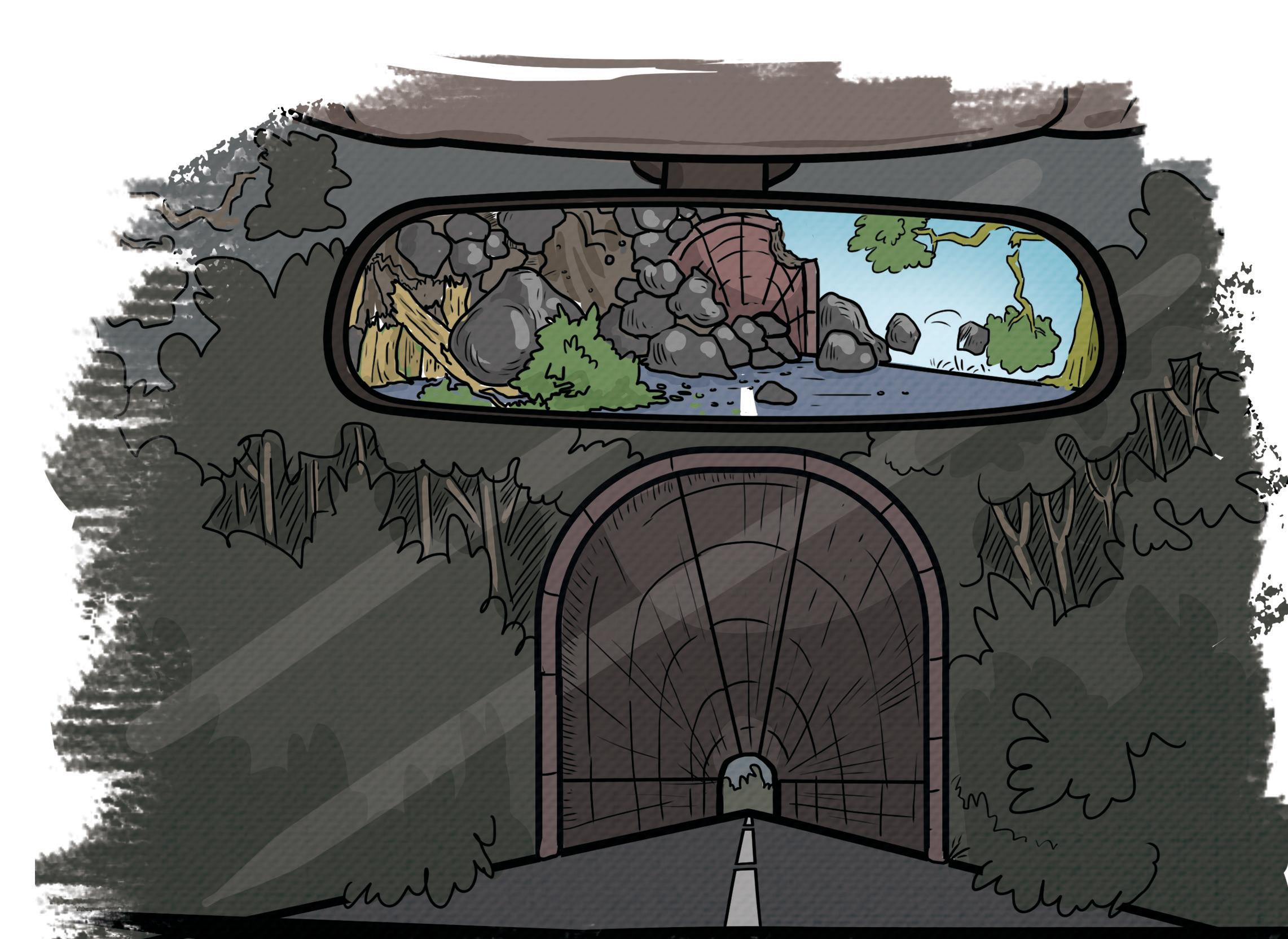Prøve GULL - Gratis
TUNNEL VISION
Down To Earth
|March 16, 2025
Bengaluru's civic body must ascertain suitability of the city's geology before moving ahead with its tunnel road project for seamless travel

With over 15 million vehicles plying the roads of Bengaluru, the rapidly expanding megacity no doubt grapples with severe traffic congestion despite the expansion of public transport facilities like the metro-rail services. The 2024 congestion level index by TomTom, a Dutch location technology developer, says Bengaluru is the third-slowest city for traffic in the world, behind only Barranquilla in Colombia and Kolkata. So to decongest the Silicon Valley of India and ensure a “seamless travel solution”, the city’s civic body, Bruhat Bengaluru Mahanagara Palike (BBMP), has unveiled the blueprint of an ambitious public infrastructure plan that involves constructing elevated corridors, under-passes and even tunnel roads between key corridors, such as Hebbal Esteem Mall junction and Silk Road KSRP junction. A New Delhi-based consultancy firm has submitted its feasibility report for the project to BBMP in December 2024.
However, a quick analysis of the feasibility report shows that not much emphasis has been placed on the ground-truth data related to the region’s lithology (which explains the characteristics of rocks) and hydrogeology (movement of groundwater and how it interacts with soil and rocks). Such data is particularly necessary to assess the viability of tunnelling projects that are influenced by the geological condition of the region and may lead to hazards such as subsidence and landslides. It is also important because of the city's complex geology.
Denne historien er fra March 16, 2025-utgaven av Down To Earth.
Abonner på Magzter GOLD for å få tilgang til tusenvis av kuraterte premiumhistorier og over 9000 magasiner og aviser.
Allerede abonnent? Logg på
FLERE HISTORIER FRA Down To Earth

Down To Earth
THINK TWICE BEFORE FELLING SAL TREES
Many trees considered to be affected by sal borer in the 1990s are still alive today
1 mins
February 16, 2026

Down To Earth
EDGE OF SURVIVAL
Caste divides deny marginalised communities land, resources and essential aid, leaving them more vulnerable to climate disasters
6 mins
February 16, 2026

Down To Earth
A WISH LIST?
Union Budget for 2026-27 conveys the impression of a roll-call of intentions and ambitious proposals, with little detail on their formulation
6 mins
February 16, 2026
Down To Earth
Break down the gender wall
THE RULING National Democratic Alliance (NDA) government has been heavily invested in the goal to make India a developed economy by 2047.
2 mins
February 16, 2026

Down To Earth
MENSTRUAL HEALTH, NOW A FUNDAMENTAL RIGHT
In a landmark judgement, the Supreme Court has recognised menstrual health and hygiene as a fundamental right under Article 21 of the Constitution of India, which guarantees the right to life and dignity.
8 mins
February 16, 2026

Down To Earth
Of devolution and new disasters
The 16th Finance Commission pushes for changes in view of new fiscal and climatic conditions
11 mins
February 16, 2026
Down To Earth
Rising risks of plastics
NEGATIVE IMPACTS on human health due to emissions linked to the plastic lifecycle could double by 2040, according to a study published in The Lancet Planetary Health in January.
1 min
February 16, 2026

Down To Earth
GAP BETWEEN EPIDEMICS NARROWING
A watershed-based and landscape-level approach is needed to address forest degradation
2 mins
February 16, 2026

Down To Earth
WAITING TO STRIKE
Sal heartwood borer is considered the biggest threat to forestry in India, especially to the sal tree, where it lives and breeds.
11 mins
February 16, 2026

Down To Earth
A SPRING DELIGHT
Mustard flowers are not meant only for the eyes. Invite them to your plate once in a while
3 mins
February 16, 2026
Listen
Translate
Change font size

